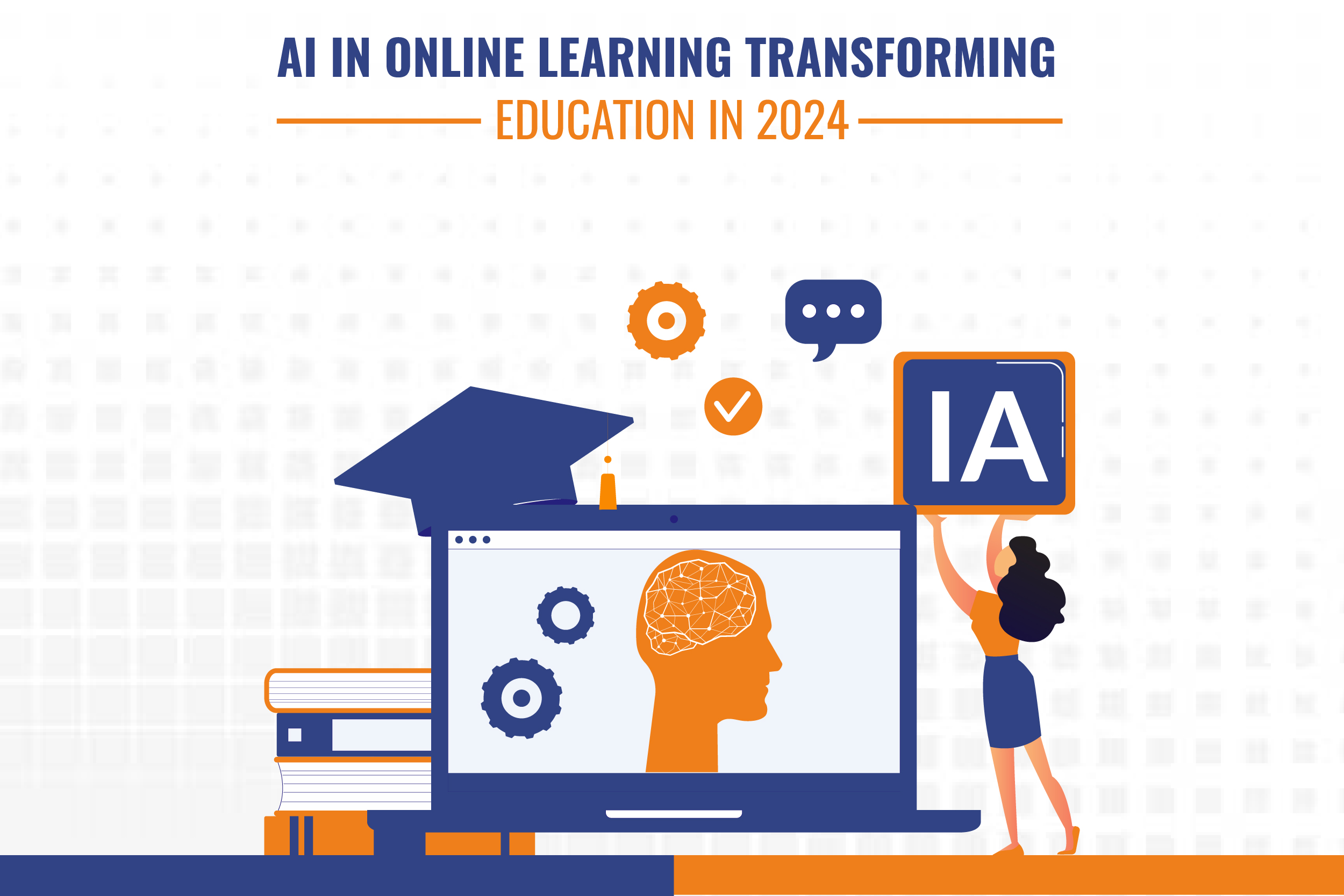
AI in Online Learning Transforming Education in 2024
In the digital age, education has undergone a significant transformation, with online learning platforms revolutionizing the way knowledge is disseminated and acquired. Among the myriad technologies driving this revolution, Artificial Intelligence (AI) stands out as a potent force reshaping the landscape of education, particularly in the realm of technical training courses and corporate programs. As we delve into 2024, the intersection of AI and online learning promises a future where education is more personalized, accessible, and effective than ever before.
The Rise of Online Learning Platforms
Before delving into the role of AI in online education, it is crucial to understand the context in which these advancements are taking place. Online learning platforms have experienced exponential growth over the past decade, fueled by advancements in technology, changing attitudes toward traditional education, and the demand for flexible learning options.
These platforms offer a diverse array of courses, ranging from academic subjects to vocational skills and technical training programs. Learners can access high-quality educational content from anywhere with an internet connection, breaking down barriers to education imposed by geography, cost, and time constraints. As a result, online learning has become a cornerstone of lifelong learning and professional development for millions around the globe.
The Integration of AI in Online Learning
At the heart of the online learning revolution lies AI, a disruptive technology that is transforming every facet of the educational experience. AI algorithms analyze vast amounts of data to personalize learning pathways, provide real-time feedback, and enhance engagement. In the realm of technical training courses and corporate programs, AI is particularly adept at addressing the unique challenges faced by learners and instructors alike.
Adaptive Assessment and Feedback
Traditional assessments often provide a one-size-fits-all approach to evaluating learning outcomes. However, AI-powered assessment tools can adapt to each learner's level of proficiency, providing targeted feedback and recommendations for improvement. In technical training courses, adaptive assessments can gauge not only a learner's theoretical knowledge but also their practical skills through simulations and interactive exercises.
Enhanced Engagement and Interactivity
AI-powered chatbots and virtual assistants are transforming the way learners interact with online content, providing immediate support and guidance whenever it is needed. These intelligent systems can answer questions, offer explanations, and facilitate discussions, creating a more immersive and interactive learning experience.
Data-Driven Insights for Instructors
In addition to benefiting learners, AI in online learning also provides valuable insights for instructors and course designers. By analyzing learner data, AI algorithms can identify patterns and trends, highlighting areas of the curriculum that may need revision or improvement. For example, if a significant number of learners struggle with a particular concept or module in a technical training program, AI can flag this issue to instructors, prompting them to review and refine their teaching approach.
Applications of AI in Technical Training Programs
The integration of AI in corporate technical training programs holds immense potential for preparing the workforce of tomorrow. From upskilling existing employees to training the next generation of technology professionals, AI-driven solutions are reshaping the way organizations approach corporate learning and development.
Skill Gap Analysis and Training Needs Assessment
One of the primary challenges faced by organizations is identifying skill gaps within their workforce and designing training programs to address them effectively. AI algorithms can analyze employee performance data, job roles, and industry trends to identify areas where additional training is needed.
Virtual Reality (VR) and Augmented Reality (AR) Simulations
VR and AR technologies are revolutionizing the way technical skills are taught and practiced, offering immersive, hands-on learning experiences without the need for expensive equipment or physical classrooms. AI algorithms enhance these simulations by providing personalized feedback and guidance based on learner actions and performance.
Predictive Analytics for Training Effectiveness
Measuring the effectiveness of training programs has always been a challenge for organizations. However, AI-powered predictive analytics offer a solution by analyzing a range of factors, such as learner engagement, assessment scores, and job performance metrics, to determine the impact of training on organizational outcomes.
Challenges and Considerations
While the potential benefits of AI in online learning and corporate technical training programs are clear, several challenges and considerations must be addressed to realize its full potential.
Ethical and Privacy Concerns
As AI algorithms become increasingly sophisticated, concerns about data privacy, algorithmic bias, and ethical use of AI in education are paramount. It is essential for educators, policymakers, and technology providers to collaborate on developing ethical guidelines and safeguards to protect learner privacy and ensure fairness and transparency in AI-driven educational systems.
Access and Equity
Despite the promise of online learning and AI, access to high-quality education remains unevenly distributed across geographic regions and socioeconomic groups. Addressing issues of digital equity and access to technology is essential to ensure that all learners, regardless of their background, have the opportunity to benefit from AI-driven educational innovations.
Continuous Learning and Adaptation
AI technologies are rapidly evolving, requiring educators and learners to engage in continuous learning and adaptation to stay abreast of the latest developments. Investing in professional development and training programs for educators is essential to ensure that they are equipped with the knowledge and skills needed to harness the full potential of AI in education.
Final Words
AI is poised to revolutionize online learning and technical training programs, transforming education in 2024 and beyond. By leveraging the power of AI algorithms for personalized learning, adaptive assessment, and data-driven insights, educators and organizations can create more effective, engaging, and accessible learning experiences for learners around the globe.
However, realizing the full potential of AI in education requires addressing ethical, equity, and pedagogical considerations, as well as fostering a culture of continuous learning and adaptation. With careful planning and collaboration, AI has the potential to unlock new possibilities for the future of education, empowering learners to thrive.
